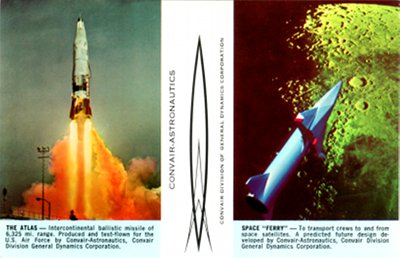 Essays at Troynovant:
Essays at Troynovant:
mining the prismatic
veins of Knowledge;
listed by Title, G-L
These essays range in length from squibs to complex treatments; and in style from humorous to polemical, from expository to analytical. The title or first paragraph should tell you what you're looking at, if not necessarily what you're in for.
Some entries here we label review-essays. This distinguishes contributions more substantial than regular reviews, still focusing on particular works; but, essay-like, perhaps longer, more detailed, more fully backgrounded, more analytical. As a practical matter this means basically that the contribution is given an entry in the appropriate Essays index as well as the Books or Films etc index(es).
Essays or review-essays are more likely to include significant plot spoilers than our regular reviews. If so, we assume you've read the books or seen the films discussed therein, but we do try to indicate that up front.
[ alphabetical by topic; topical persons (if any); essayist ]
| Galadriel and Ayesha | H. Rider Haggard J.R.R. Tolkien |
WH Stoddard |
| Gas-Electric Cars Go Way Back Some History and Prospects |
WR Franson | |
| Geared Way, Way Down A Parable of Efficiency |
WR Franson | |
| Hayashi's Theory on Why Teenage Girls Love Vampires | SK Hayashi | |
| Heinlein Story and Novel Collections | Robert A.Heinlein | RW Franson |
| Heinlein's Missed Bestsellers | Robert A.Heinlein | RW Franson |
| Hitler's Shattered Dream, 1932 | RW Franson | |
| Horatius at Khazad-dum | Thomas Babington Macaulay J.R.R. Tolkien |
WH Stoddard |
| How Many Wheels? Early Three-Cornered Cars |
WR Franson | |
| How to Recreate a Constitution From Amending Principles to Doing Without |
SE Jordan | |
| Hupmobile Automobiles 1908-1940 |
WR Franson | |
| If Ever You Wanted One Thing Twice Zarathustra as Blues Singer |
Friedrich Nietzsche Robert Johnson |
RW Franson |
| If We Only Had a Brain Neurofeedback for America |
SE Jordan | |
| I'll Grind His Bones to Make My Bread An Unscientific Enquiry into a Failed Experiment in Quasi-Cannibalism |
JM Franson | |
| Illusionists, The (Space Fear) | James H. Schmitz | RW Franson |
| Impending Crisis, The 1848-1861 |
David M. Potter | RW Franson |
| Imps in the Websites Blunders of Enthusiasm |
RW Franson | |
| In Which Our Revels Are Not Ended | K Spell | |
| Inspector Napoleon Bonaparte series | Arthur W. Upfield | RW Franson |
| Invisibility "The Ring of Gyges" & the Cesspool of Injustice |
Plato | NG Britton |
| Is It Time to Establish a British Libertarian Party? | W McElroy | |
| Ishmael Paradigm, The A Critique of Daniel Quinn's Ishmael |
Daniel Quinn | G Stolyarov II |
| It's Elementary Lewis Little's Theory of Elementary Waves: A New Explanation of Fundamental Physics |
Lewis Little | DM Sandin |
| John Galt, Man of Letters | John Galt | RW Franson |
| Jupiter Takes a Hit for the System Comet Shoemaker-Levy 9 Impacts 16-22 July 1994 |
RW Franson | |
| Justice Is an Essay Question | S Farrell | |
| Kitchen Romances The Constable and the Maid |
K Resta | |
| Law and Institutions in the Shire | J.R.R. Tolkien | WH Stoddard |
| Let There Be Light | Robert A. Heinlein | RW Franson |
| Liberate Public Schools from Government by Lawsuit [Summary] |
E Enstrom, Jr. | |
| Life and Value in Ayn Rand's Ethics | Ayn Rand | WH Stoddard |
| Living in the Current Middle Ages Discover The Society for Creative Anachronism |
S Farrell | |
| Lodge in a Garden of Cucumbers, A in Dorothy Sayers, from Isaiah |
Isaiah Dorothy L. Sayers |
RW Franson |
| Looking Through a Paradigm Darkly Was Dominque's rape in The Fountainhead actually rape? Why ... or why not? |
Ayn Rand | W McElroy |
| Lord of the Rings, The (with Balrog Eggs) |
J.R.R. Tolkien Peter Jackson |
RW Franson, DH Franson |
| Lose the Loose Road-Bumps of Word-Substitution via Misspelling |
RW Franson | |
| Lovecraft as Astronomer | H.P. Lovecraft | RW Franson |
| Low Flying Planes, Subway Trains and Automobiles | A Brown | |
| Lunar Fictions from Earthbound Imaginations Advice to Writers, 1959 |
RW Franson | |
The dawn of literature ... was bathed in the twilight of mysticism and mythology. ... But the earliest literati — priests, prophets, rhapsodes, bards — had less direct means to impress their audiences than their older colleagues, the masked and painted illusion-mongers. They had to 'dramatize' their tales, by techniques which we can only infer from hints.
The dramatization of an epic recital aims, like stage-craft from which it is derived, at creating, to some extent at least, the illusion that the events told are happening now and here. Perhaps the oldest of these techniques is the use of direct speech, to make the audience believe that it is listening not to the narrator but to the characters themselves; ...
There is hardly a novelist who had not wished at times that he were a histrion [stage-player], and could convey by direct voice, grimace, and gesture what his characters look like and feel. But writers have evolved other techniques to create the illusion that their characters are alive, and to make their audience fall in love with a heroine who exists only as printer's ink on paper. The real tears shed over Anna Karenina or Emma Bovary are the ultimate triumph of sympathetic magic.
Arthur Koestler
The Act of Creation (1964)